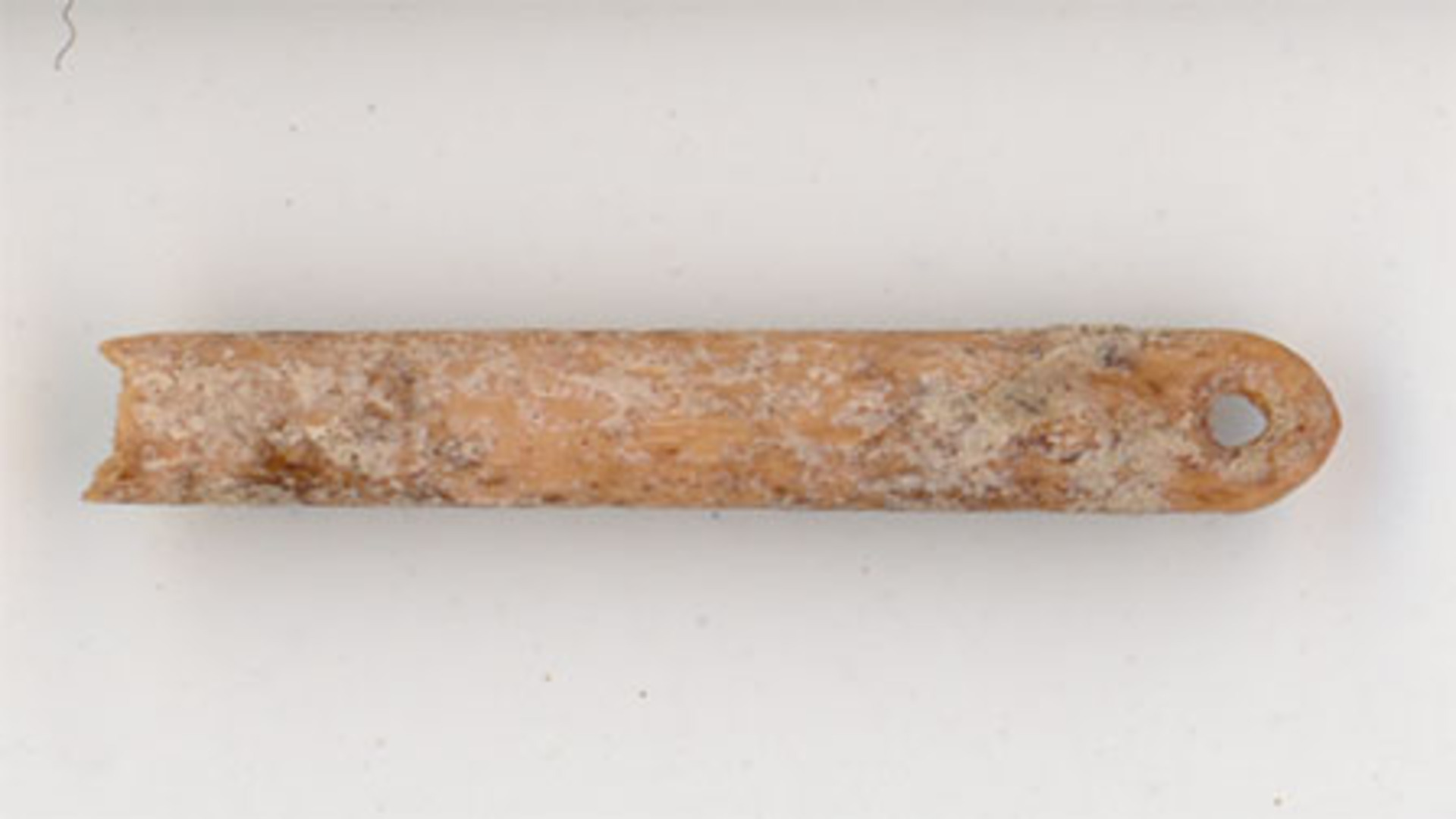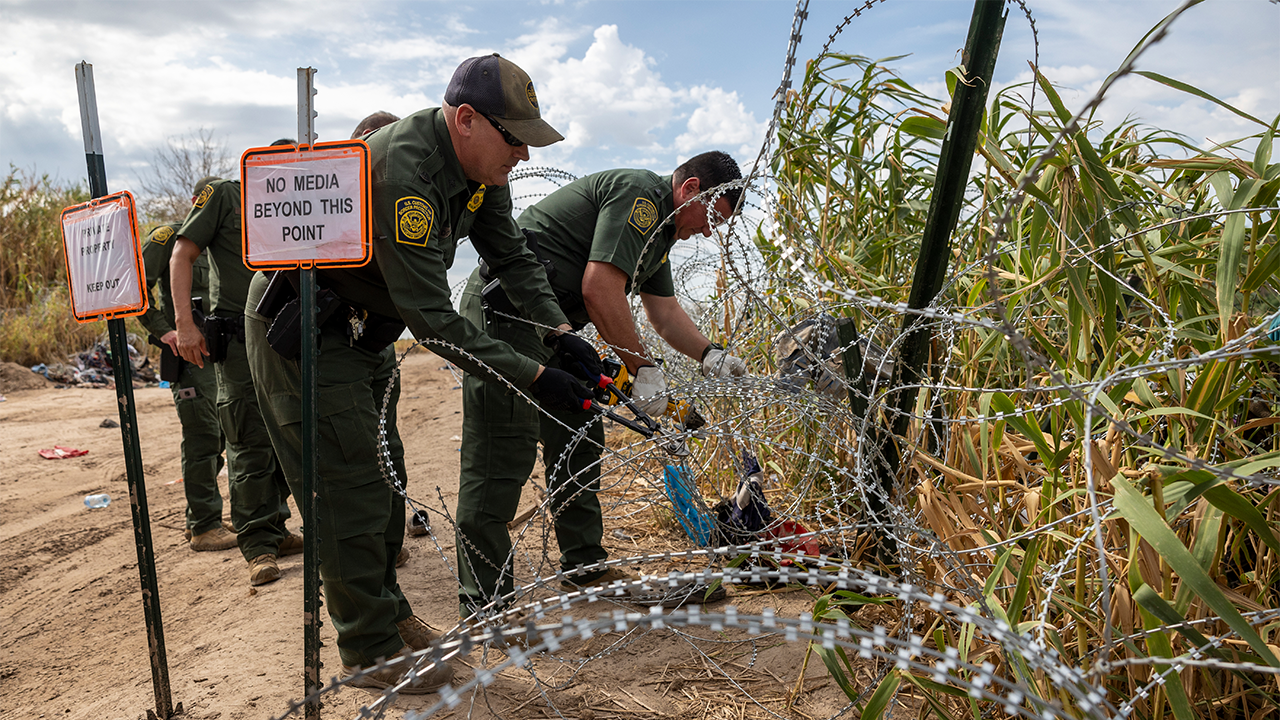Mississippi
Tuesday’s vote: Race for Adams County Sheriff – Mississippi’s Best Community Newspaper

Tuesday’s vote: Race for Adams County Sheriff
Published 1:32 pm Monday, August 7, 2023
- Adams County Sheriff Travis Patten, left, and candidate Lance Adams. (Submitted)
NATCHEZ — Adams County Sheriff Travis Patten faces challenger Lance Adams in the Democratic primary on Tuesday. Here are their responses to questions posed by The Natchez Democrat.
Lance Adams, Candidate, Adams County Sheriff
What position are you seeking and why are you running for this position?
ANSWER: I am running for the office of Sheriff of Adams County. I made the decision long ago that I wanted to run for office. The reason I decided to run now is that I’ve seen how much Natchez-Adams County has changed over the past eight years. I see businesses closing, families moving away or planning to move. I see vacant buildings and houses for sale every time I drive through town. Adams County used to be a good and safe place to raise a family, I don’t think anyone can argue that things have changed. There is no magic solution to fix all of the problems facing our community but I have the experience and motivation to move Adams County forward. I think it’s time for voters to send a clear message to criminals, what has gone on will go on no longer. I want to get crime under control so that we can get our local economy back on track and show people that Adams County is a safe place for you to raise a family and open a business.
What experience do you have that you think qualifies you for this office?
ANSWER: I have been in Law Enforcement for 13 consecutive years. I began my career at the Adams County Sheriff’s Office, where I was fortunate enough to help many people throughout our community. I helped rescue a woman from domestic violence. I helped a child escape abuse, and in 2015 I was one of two deputies to receive recognition for saving a child’s life. I left the sheriff’s office to pursue a degree from the University of Southern Mississippi.
During that time, I have been employed at the USM Police Department, where
I am currently a Lieutenant Commander over Investigations. I have investigated cases in Hattiesburg, often working with The Hattiesburg Police Department, Forrest County, and Lamar County Sheriff’s departments. I have also worked with the state Attorney General’s office investigating numerous fraud cases. I have also worked with the FBI on cases involving terroristic threats. I investigated cases on the Gulf Coast in Ocean Springs, Long Beach, and Biloxi. I conducted security assessments of facilities. I am over Internal Affairs for my department and have conducted several IA investigations concerning officer conduct.
As part of my position, I oversee case management for the whole department. I
am also over the Executive Protection team, often working with federal and state agents protecting high-ranking dignitaries and government officials. In 2020 I was awarded the Hattiesburg 100 Award, given to Law enforcement officers for outstanding service.
My heart and passion have always been for Adams County, and serving its citizens was some of the greatest years of my life. I look forward to returning and continuing my family’s long history of service to the community. I am eager to get out and speak with the community about how we can move Adams County Forward Together!
Have you held other political office? If so, what and when?
ANSWER: I have not held political office before.
Why do you think you would be the best candidate for this office?
ANSWER: Working as a deputy in Adams County was some of the best years of my life. I love serving my community and I know during those years I made a difference in the lives of several citizens I interacted with. I am a hard worker and will not stop until the job gets done. I am easy to get along with and very approachable, I know how to work with others and compromise. I am empathetic and can understand the needs of the people I will serve. I think these qualities will help make me the best candidate for the job.
Tell us where you work and how long you have worked there? What is your position at work?
ANSWER: I am currently employed at The University of Southern Mississippi Police
Department and I have worked there for 6 years. My position is Lieutenant Detective Commander over Investigations.
Tell us about your education experience, high school and college.
ANSWER: I am a graduate of Natchez High School. After high school I attended Copiah-Lincoln Community College. I attend The University of Southern Mississippi where I am pursuing a bachelor’s degree in Sociology with a minor in Legal Studies.
What are the biggest challenges facing the office you are seeking or currently hold, and how would you propose to solve them?
ANSWER: I think one of the biggest issues facing the sheriff’s office is the crime rate. There is no magic solution that will end crime in our community, but I think there are some changes we can make that will turn things in the right direction. I would like to see an increase in marked patrol vehicles out on the streets. The first level of crime prevention is officer presence, so we need to be sure law enforcement is being seen. I’ve spent several years working in investigations, so I want to see what kind of cases are being made so we give the Prosecutor or the District Attorney’s Office everything they need to get a conviction.
I’ll also work to maintain a good relationship with those offices, I know how to work with others to get things done. I would also appoint an accreditation manager that will work on getting the sheriff’s office nationally accredited, so we meet the highest standards in the nation. Currently no sheriff’s office in Mississippi is nationally accredited. I’ll also pursue national accreditation for the jail to show that we are doing everything we can to run a top-notch facility. It’s no secret that problems have plagued that county jail for the last several years. I think national accreditation for the jail will encourage the board and voters to make improvements to the facility. There has to be a better solution than bussing inmates out to Ferriday. I’ll also have a big focus on community policing. I want to look at appointing a deputy to each neighborhood in the county and that deputy will get to know the residence in that community. Building these relationships will help with crime prevention and help solve crimes when people know they can trust that deputy. I also want to do what I can to support E911 and the central dispatch center. My late father Bryant Adams was president of the E911 board, getting the central dispatch up going was one of the last things he worked on. Having everything under one roof in the central dispatch should help cut down on response for emergency services. I want to do my part to see that it succeeds. These are just a few things I would like to accomplish.
What else do you want potential voters to know?
ANSWER: I would want voters to look at the current state of crime in our community and ask themselves if things could be better. After the past eight years is our community safer than it was or have things gotten worse. If the answer is yes, then we need to make a change. I am asking for your vote on August 8, I would be grateful for the opportunity to serve you as your new sheriff. Together we can move Adams County forward!
Travis Patten, incumbent, Adams County Sheriff
What position are you seeking and why are you running for this position?
ANSWER; I am running for re-election as the Adams County Sheriff because there is still more work to be done. Over the years, we have accomplished a lot of great things and developed a network of resources that spans across the United States.
We have worked cases in Adams County that have caused the laws of our great state to be changed for the better, took down major drug operations, built real relationships with our community and the stakeholders, yet there are still causes that need a voice in this community. I want to be that voice and utilize the platform as Sheriff to continue getting the job done.
What experience do you have that you think qualifies you for this office?
ANSWER: As the current Adams County Sheriff, I know intimately the challenges we
face as an office, a county and community. ACSO, under my leadership, has implemented several new programs, processes and procedures that address
the needs of those who serve and those who are being served. While serving
Adams County over the last 8 years, the county has seen a series of crises.
I’ve led us through those crises and that on-the-job experience is unique to me as a candidate. In addition to this, I also served our country in the United States Navy and was a licensed mortgage loan originator for 9 years with Integrity Mortgage Center, LLC. When you look at the diversity of my experience, I believe this best qualifies me for re-election.
Have you held other political office? If so, what and when?
ANSWER: Yes, I am a two-term Sheriff of Adams County, initially elected in 2015.
Why do you think you would be the best candidate for this office?
ANSWER: I am the best candidate for Sheriff of Adams County, because of my track record as Sheriff. Throughout my tenure as Sheriff, we’ve seen the ACSO reach unprecedented service levels. We’ve created the 1st ever- peer support team to recognize the signs of an officer in need and get them the assistance needed. We now have the wellness program and wellness app for ACSO staff that considers their physical, financial, and mental wellnessas well as Crisis Intervention Trained Officers in the jail and patrol units. We have worked with the Board of Supervisors to approve three pay raises for ACSO boosting morale, recruitment, and retention. I’ve been instrumental in fostering partnerships with the Department of Homeland Security, Secret Service, ATF, FBI, DEA and US Attorney’s office to expand resources that can be deployed in a time of crisis.
Not only do we have national relationships because of the leadership I’ve shown locally but we have a working relationship with the DEA that led to the largest drug bust in the history of Adams County, spanning multiple states with over a million dollars in cash, 5 ounces of Ecstasy, 27 kilograms of Cocaine, 29 pounds of Methamphetamine, 8 guns, 9 vehicles and 6.9 pounds of Heroin taken off Adams County streets. I’ve also been able to lead in areas that promote communication across our county, through our partnership with global media giant Google, and creating a state-of-the-art computer and cell phone forensics unit, that rivals that of the Attorney General’s Office. These are efforts that have better positioned me as Sheriff to successfully negotiate and de-escalated gun club’ threats with a peaceful resolution.
Tell us where you work and how long you have worked there? What is your position at work?
ANSWER: Sheriff, Adams County, 8 years
Tell us about your education experience, high school and college.
ANSWER: Graduated from Natchez High in 1997, Graduated from the MS Law Enforcement Officers Training Academy in 2001, Graduated from Co-Lin Community College in 2017 with an Associate Degree in Criminal Justice, Graduated from Jackson State University in December 2022 with a Bachelor’s Degree in Criminal Justice, and was the first Sheriff in the State of Mississippi to graduate from the Department of Homeland Securities Leadership Academy in Feb. 2023 (DHLSA #15)
What are the biggest challenges facing the office you are seeking or currently hold, and how would you propose to solve them?
ANSWER: Adams County Sheriff’s Office, like many law enforcement agencies across this country, has faced some staffing challenges, I am proud to say through the recruitment and retention strategies I’ve implemented we continue to have over 98% of all vacancies filled. We have and will continue to stay on the leading edge of innovation and methodology in law enforcement trends, through continuous training for deputies at all rank levels that keep us in compliance with all local, state, and federal policing practices as well as being well prepared to respond to any type of crisis that could come to Adams County.
What else do you want potential voters to know?
ANSWER: I am thankful for the opportunity to serve and lead the Adams County Sheriff’s Office for the last 8 years. My family and I are grateful for your support, prayers, and vote of confidence over the years. I and the men and women of the Sheriff’s Office have accomplished so much together, with the support of our community. We’ve committed ourselves to the consistent and careful consideration of our citizens, through collaborations at the local, state, and federal levels. We’ve been transparent and created seamless lines of communication to and from the ACSO. With your support, we’ve shown great leadership through crises, and we stand ready to continue our service to this great county.
I need your help to continue Leading Through Crisis, with Consistent Commitment to Our Community. Please consider voting for me on Aug. 8.

Mississippi
Thanksgiving on Mississippi Public Broadcasting Think Radio, set to air on Thursday, November 28th

MISSISSIPPI (KTVE/KARD) — For Thanksgiving, on Thursday, November 28, 2024, the Mississippi Public Broadcasting Radio will air a special programming.
Photo courtesy of Mississippi Public Broadcasting
According to officials, “Turkey Confidential” and “Feasting with the Great American Songbook: An Afterglow Thanksgiving Special” will run from 9 a.m. to 1 p.m. Francis Lam will be taking calls and help those in need of Thanksgiving cooking tips for the biggest cooking day of the year.
According to officals, “Feasting with the Great American Songbook: An Afterglow Thanksgiving Special” will explore classic jazz and popular songs about food by singers like Louis Armstrong, Louis Jordan, and Fats Waller, perfect for listening while sitting at the table.
Mississippi
Southeast Mississippi Christmas Parades 2024 | WKRG.com

MISSISSIPPI (WKRG) — It’s beginning to look a lot like Christmas on the Gulf Coast and that means Santa Claus will be heading to town for multiple parades around the area.
WKRG has compiled a list of Christmas parades coming to Southeast Mississippi.
Christmas on the Water — Biloxi
- Dec. 7
- 6 p.m.
- Begins at Biloxi Lighthouse and will go past the Golden Nugget
Lucedale Christmas Parade
Mississippi
‘A Magical Mississippi Christmas’ lights up the Mississippi Aquarium

GULFPORT, Miss. (WLOX) – The Mississippi Aquarium in Gulfport is spreading holiday cheer with a new event, ‘’A Magical Mississippi Christmas.’
The aquarium held a preview Tuesday night.
‘A Magical Mississippi Christmas’ includes a special dolphin presentation, diving elves, and photos with Santa.
The event also includes “A Penguin’s Christmas Wish,” which is a projection map show that follows a penguin through Christmas adventures across Mississippi.
“It’s a really fun event and it’s the first time we really opened up the aquarium at night for the general public, so it’s a chance to come in and see what it’s like in the evening because it’s really spectacular and really beautiful,” said Kurt Allen, Mississippi Aquarium President and CEO.
‘A Magical Mississippi Christmas’ runs from November 29 to December 31.
It will not be open on December 11th, December 24th, and December 25th.
Tickets can be purchased online or at the gate.
The event is made possible by the city of Gulfport and Coca-Cola Bottling Company.
See a spelling or grammar error in this story? Report it to our team HERE.
Copyright 2024 WLOX. All rights reserved.
-

 Science1 week ago
Science1 week agoTrump nominates Dr. Oz to head Medicare and Medicaid and help take on 'illness industrial complex'
-
/cdn.vox-cdn.com/uploads/chorus_asset/file/25739950/247386_Elon_Musk_Open_AI_CVirginia.jpg)
/cdn.vox-cdn.com/uploads/chorus_asset/file/25739950/247386_Elon_Musk_Open_AI_CVirginia.jpg) Technology1 week ago
Technology1 week agoInside Elon Musk’s messy breakup with OpenAI
-

 Health5 days ago
Health5 days agoHoliday gatherings can lead to stress eating: Try these 5 tips to control it
-

 Health3 days ago
Health3 days agoCheekyMD Offers Needle-Free GLP-1s | Woman's World
-

 Science2 days ago
Science2 days agoDespite warnings from bird flu experts, it's business as usual in California dairy country
-

 Technology1 day ago
Technology1 day agoLost access? Here’s how to reclaim your Facebook account
-

 Science1 week ago
Science1 week agoAlameda County child believed to be latest case of bird flu; source unknown
-

 Sports1 week ago
Sports1 week agoBehind Comcast's big TV deal: a bleak picture for once mighty cable industry














